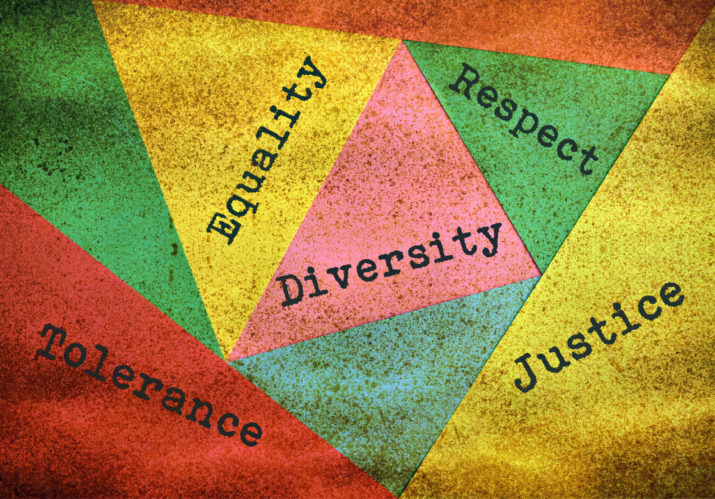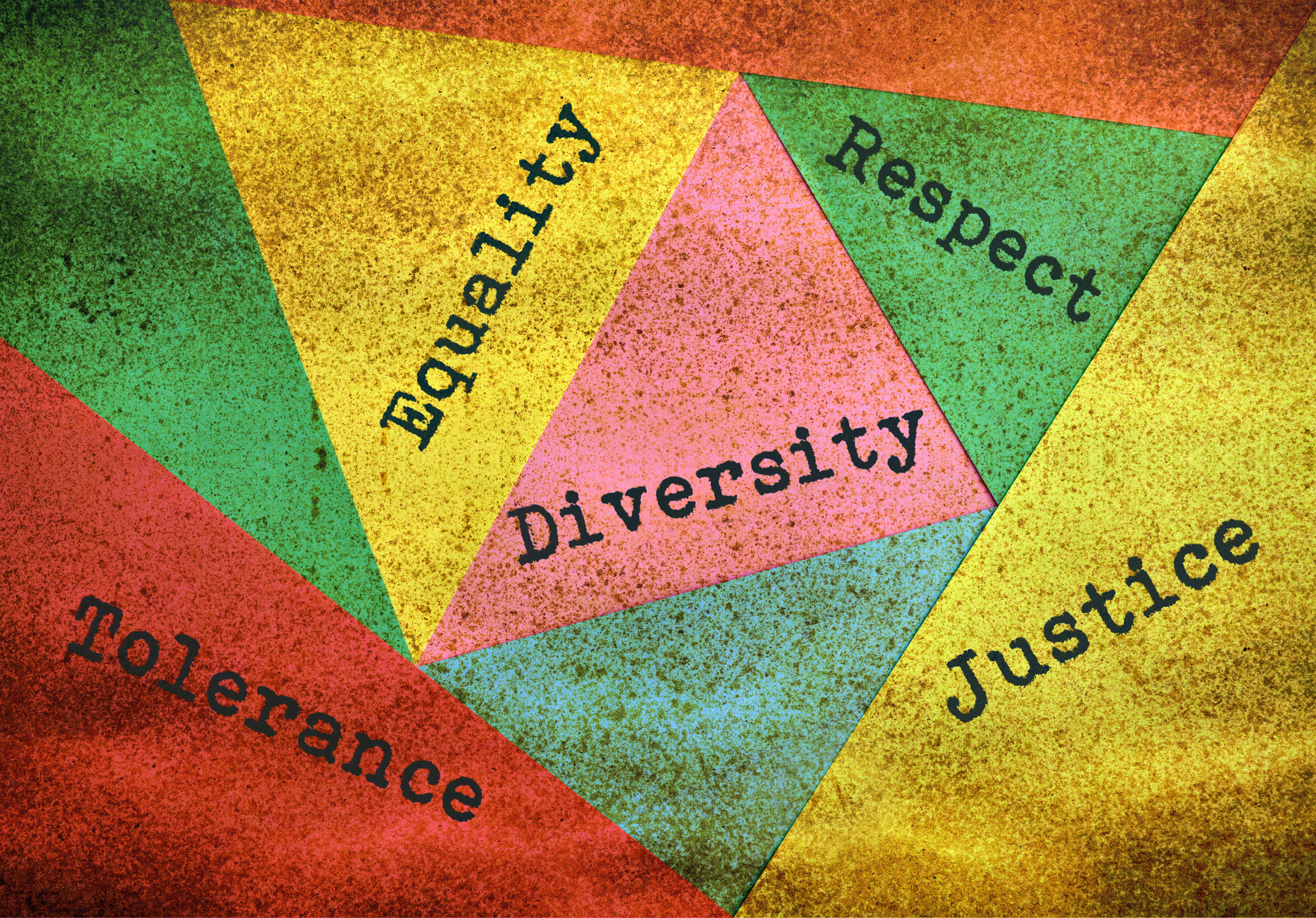

This is part of our special feature on forced migration, Narration on the Move.
This is part of our campus spotlight on Vassar College.
Course Overview
In this course we will explore best practices for nurturing positive change in a community, notably in the context of the local Latinx community. We will explore best practices in creating an inclusive community as they relate to nurturing intimacy & trust in relationships and proactively engaging dynamics around social identity & power. We will also explore case studies of effective community change and students will develop strategies for community organizing campaigns around issues that have been identified as priorities by the local Latinx community.
Much of our learning will be grounded in the perspectives and experiences of people from the local community. We will have weekly guest speakers from the local Latinx community, we will do a walking tour of Poughkeepsie through a Latinx lens, and will visit a center for young and rural immigrant youth.
Spanish-speaking and Latino-a-x students are encouraged to enroll, all students are most welcome! Both English and Spanish will be used, but always in a way that is inclusive and accessible to non-Spanish speakers.
Community Agreements
This is a very experiential class, and one that requires a degree of presence and vulnerability from each of us. Much of our learning will be in dialogue with each other and our guest speakers and we want to be able to share fully and authentically, both when it feels perhaps risky or even exposes disagreements or things that hurt. These are so important. To create the most nurturing and supportive environment for us to do this work, and to really give each of us the best chance to learn and grow as much as possible, we will hold the following community agreements as nonnegotiable norms in our class and small group meetings outside of class.
- Bring your full, authentic self
- Move up and move back or make space/take space
- Assume positive intent; assume responsibility for impact
- Stories stay, learnings leave
- Give appreciations often
- Self-care/community care
9/3 Week 1 Introductions & Overview, Community & Intimacy
- Introductions of instructors and students
- Overview of the course
- Initial thoughts/discussion on community
- Community Guest – Ariel Córdova
- Exploring intimacy as a cornerstone of personal well-being, community well-being, and effective relationships: TED talk by Brené Brown, “The Power of Vulnerability”
- Assigning Small Learning Communities
Assignments for Next Week:
Read https://tinyurl.com/latinxtatum
Beverly Daniel Tatum, Chapter 1, “A Definition of Terms,” and Chapter 2, “The Complexity of Identity,” pp.3-28, from Why Are All the Black Kids Sitting Together in the Cafeteria?
Please journal for roughly a half page for each of the chapters (so roughly a page total) on the key ideas that struck you in this excerpt. (Title: “Tatum”)
Read https://tinyurl.com/latixlorde
Audre Lorde, excerpt from “Age, Race, Class, and Sex: Women Redefining Difference,” from Sister Outsider, 114-116
Please journal for roughly a half page on the key ideas that struck you in this excerpt. (Title: “Lorde”)
View the first two case studies (up to 0:51) in A Force More Powerful. The video is available online, simply google it. The first two case studies are India and Civil Rights in the US. You do not need to view the final case study on South Africa.
Please briefly answer the following questions in your journal. Please title this entry “Force More Powerful.”
We strongly recommend reviewing the questions ahead of time and pausing the video to answer them as you view it, rather than trying to answer them after.
Please number your answers.
INDIA
- What were key components of Gandhi’s strategy in opposing the salt tax?
- What were the key aspects of raising awareness, energizing people, getting them involved, building confidence?
- Why was nonviolence such an important strategy? Were there factors that contributed to the success of nonviolence? Are there situations where nonviolence might not work, or work as well?
- Appraise Gandhi’s decision to call off civil disobedience (24:00) What do you think of the arguments, “Such movements train people.” “You can’t have everything at one stroke.” “You compromise. Then you take the next step.” “He has awakened people to their own power.”
CIVIL RIGHTS IN THE US
- “Choose a target. Choose an issue.” How would you assess a good issue? There were so many issues, so many of them much more horrifying and dehumanizing than the segregation of lunch counters. Jim Lawson notes that the lunch counters were very strategically selected. Why do you think that is? What might the advantages been?
- What do you think of protestors recently pulling down a Confederate statue at UNC? https://tinyurl.com/latinxconfederate
- What is different about the political and cultural context today versus the 1950s and how might that kind of action back then had a different impact than today?
- With regards to the lunch counter sit-ins, what do you think of the strategies of getting dressed up and “no white person sitting with a negro of the opposite sex.”
- What is most striking to you about this case study and campaign?
-Meet with your SLC (remember, you need to do one of these meetings in Poughkeepsie. It doesn’t need to be this week’s meeting, but just a friendly reminder)
-Do check-ins – 5 minute history of you
-Discuss journal questions
9/10 Week 2 Social Identity & Power
- Check-ins
- Community Guest: Evelyn Garzetta
- Exploring social identity and socialization
- Identity Flowers
- Playing and debriefing “Live Your Life”
Assignments for Next Week:
Please journal for roughly half a page on a few key impressions from our experience of creating and sharing our identity flowers and playing the Live Your Life game. Title: “Impressions”
Journal – Title: “Forget, and Never Forget” – The first two lines of the Pat Parker poem referenced in class are “The first thing you do is to forget that I’m black. Second, you must never forget that I’m black.” Please journal about the ways both of these perspectives speak to you and how you would like to be held and seen by others, and how you would like to hold and see others yourself.
Please journal on ways you would like to be supported in both your marginalized and centered identities, to help you be happy, healthy, and successful – in your SLC, in this course, in your life – and to help you be as supportive, respectful, appreciative of others in their own identities? Please title this entry “Support in Identities.”
Optional reading and viewing:
- “White Privilege: Unpacking the Invisible Knapsack by Peggy
- McIntosh”https://drive.google.com/drive/u/0/folders/1ieTCD2HixITtf8xnemk2R7XL1qSBaFpa
- White Fragility (4.35min) https://drive.google.com/drive/u/0/search?q=white%20fragility
Read https://tinyurl.com/latinxsen
Rinku Sen, “Identity-Based Movements” from the Introduction to Stir It Up: Lessons in Community Organizing and Advocacy, pp. lix to lxii
Please journal on the most striking ideas for you in this excerpt. Title: “Identity-Based Movements”
Read: Learning About Community-Based Change as an Outsider
https://tinyurl.com/latinxoutsider
Please write a brief journal entry about any thoughts the reading sparks for you. Title: “Outsider.”
Case Studies
You have already heard directly from our two guests about some of their concerns/hopes related to Poughkeepsie. Please review the following documents for
1) the results of a facilitation with Latinx community members held in Spanish that summarizes the top priorities that were identified by members of the local Latinx community when they came to a focus group/discussion at Vassar in the spring of 2018. https://tinyurl.com/latinxvoces
2)the results of a survey in Spanish distributed throughout the City of Poughkeepsie between August 2018 and December 2018. https://drive.google.com/drive/u/0/folders/1ieTCD2HixITtf8xnemk2R7XL1qSBaFpa
Title: “Case Studies” – Choose one or two of the key concerns these people raised in that last document that interest you. Research and document in a couple paragraphs each, either in your journal or on a computer and printed out and stapled in your journal two case studies of changes that have been made in communities comparable to that related to some of the top priority concerns members of the Latinx community in Poughkeepsie have identified. In addition to the description of the issue you have chosen, key internet search terms might be “Best Practices” “Breakthrough,” “Success,” “Designing a program,” “New program,” “Community comes together,” etc.
Meet with your SLC
- Do check-ins
- Discuss journal questions
- Decide which are your top two choices of restaurant for when we go into Poughkeepsie on week 3 and email Eva:
- Pancho Villa Deli Mexican Grocery. Dueño: Ariel Córdova.https://www.facebook.com/PanchoVillaDeliMexicanRestaurantAndGrocery/ (845) 485-2903
- La Cabanita. (Mexican-Oaxacan) Dueño: Viki (brother of Uriel) https://www.lacabanitaoax.com/ 845-452-7544
- La Oaxaqueña. Dueño: Hector. https://www.cocinaoaxaquena.com/ Tel. 845-454-5606
- Hefzi-Ba. (Honduran, Central American, Mexican): Dueña: Dilia https://hefzi-ba-restaurantbuffet.webnode.es/ Tel. 845-471-6193
- Nelly’s. (Dominican-Puerto Rican) Dueño: Ambioris (Spanish only): https://www.facebook.com/pages/Nellys/307538282617297 Tel. 845-486-5166
9/17 Week 3 Evaluating Campaign Goals Learning with Poughkeepsie residents and advocates
- This is the week we are meeting people in Poughkeepsie
- Please see this document for the plan of the day: https://docs.google.com/document/d/1EU-8cRcGn8-RUjrfrs6eOR9Lj78Nx16Moz-dRLiovbg/edit
Assignments for Next Week:
Please read 1-2 of the following list of articles from La Voz. La Voz’s executive editor and producer, Mariel Fiori, will be joining us next week. It would be great if you could think about a question related to La Voz’s media output. Mariel chose these articles herself:
Corriendo por la fe
https://lavoz.bard.edu/articles/index.php?id=1206235
English here https://lavoz.bard.edu/articles/index.php?id=1206247
Justicia del lenguaje
https://lavoz.bard.edu/articles/index.php?id=1206237
Encuentro con ICE, para inmigrantes y no inmigrantes
https://lavoz.bard.edu/archivo/article.php?id=1206061
Scroll down for English: https://www.chronogram.com/hudsonvalley/big-idea-knowyour-rights/Content?oid=8814798
La Guelaguetza de Poughkeepsie
https://lavoz.bard.edu/archivo/article.php?id=1206062
English here: https://lavoz.bard.edu/archivo/article.php?id=1206217
El conocimiento es poder
https://lavoz.bard.edu/archivo/article.php?id=1205610
English here: https://lavoz.bard.edu/archivo/article.php?id=1205611
Poughkeepsie-Oaxaca
https://lavoz.bard.edu/archivo/article.php?id=1205613
Derechos empleadas domésticas
https://lavoz.bard.edu/archivo/article.php?id=1205614
La autora es estudiante de Vassar College
Concurso de deletreo en español
https://lavoz.bard.edu/archivo/article.php?id=1205616
Licencias de conducir, ya es hora
https://lavoz.bard.edu/archivo/article.php?id=1205581
English here: https://lavoz.bard.edu/archivo/article.php?id=1205595
China y el reciclaje en el Valle del Hudson
https://lavoz.bard.edu/archivo/article.php?id=1205592
Quién dijo que todo está perdido
https://lavoz.bard.edu/archivo/article.php?id=1205558
In English here: https://lavoz.bard.edu/archivo/article.php?id=1205568
A cuidar nuestro río
https://lavoz.bard.edu/archivo/article.php?id=1205559
Latinas, y latinos, en negocios
https://lavoz.bard.edu/archivo/article.php?id=1205532
in English here: https://lavoz.bard.edu/archivo/article.php?id=1205543
Decolonizando la riqueza
https://lavoz.bard.edu/archivo/article.php?id=1205455
in English here: https://lavoz.bard.edu/archivo/article.php?id=1205470
Read https://tinyurl.com/latinxminieri
Joan Minieri, Paul Getsos, “What are the components and principles for building community power?” (xx-xxii) and “What are some of the main concepts of organizing?” (xxii-xxiii) and “Powering Up” (23-29), from Tools For Radical Democrac
Briefly answer the following questions in your journal. Please title this entry “Power.”
1. What do you believe are the sources of power for a group or an individual trying to make a difference? That is, what societal and personal attributes contribute to an individual or group being powerful?
2. What might be the advantages and disadvantages of building power around one or a small number of leaders?
3. What are the pros and cons of only taking on “winnable” campaigns?”
4. What are the pros and cons of focusing on “building power in a community” as opposed to “just winning on issues?” What are the ways that winning on issues might be worthwhile on their own, or might actually contribute to building power in a community?
5. Consider the following two quotes. What do you think of the advice these two people offer and how it relates to the question of where to focus efforts to serve people and make a difference?
“Looking for the social determinants is not the same as looking for root causes, which can sometimes become an excuse for inaction — the idea that you have to solve everything before you can solve anything. Both concepts recognize that poverty causes interlocking problems. But targeting social determinants is specific and practical. A medical clinic doesn’t have to lift a child out of poverty to treat her asthma. But it must get the landlord to do mold abatement. Schools can’t reduce adverse childhood experiences. But they can manage their impact.”
(Rosenberg, T. 1211/2014. Big Ideas in Social Change, 2014. NYTimes. http://opinionator.blogs.nytimes.com/2014/12/11/big-ideas-in-social-change-2014)
“Because liberals have allowed conservatives to set the terms of the poverty debate, they find themselves arguing about radical solutions that imagine either a fully employed nation (like a jobs guarantee) or a postwork society (like a universal basic income). Neither plan has the faintest hope of being actually implemented nationwide anytime soon, which means neither is any good to Vanessa and millions like her. When so much attention is spent on far-off, utopian solutions, we neglect the importance of the poverty fixes we already have. Safety-net programs that help families confront food insecurity, housing unaffordability and unemployment spells lift tens of millions of people above the poverty line each year. By itself, SNAP annually pulls over eight million people out of poverty. According to a 2015 study, without federal tax benefits and transfers, the number of Americans living in deep poverty (half below the poverty threshold) would jump from 5 percent to almost 19 percent. Effective social-mobility programs should be championed, expanded and stripped of draconian work requirements.”
(Desmond, M. 9/11/2018. Americans Want to Believe Jobs Are the Solution to Poverty. They’re Not. NYTimes. https://www.nytimes.com/2018/09/11/magazine/americans-jobs-poverty-homeless.html)
6. What do you imagine are the greatest obstacles in trying to make positive change
7. What are the reasons people may not get involved in a campaign for an issue that is very important? Do you have some initial ideas on how those obstacles might be overcome?
Read https://tinyurl.com/latinxdouglass
Frederick Douglass, ““If There Is No Struggle, There Is No Progress”
Journal: In what ways do Douglass’ comments about the need for struggle in order to affect change resonate with you? Are there ways you see this manifesting in our world today? Half page-ish. Please title this entry “Struggle.”
Read https://tinyurl.com/latinxwhite
Robin White, “Abolishing Evil” (excerpt)
Read https://tinyurl.com/latinxfreedom
Marilynne Robinson, “‘Though the Heavens May Fall’ and ‘Bury the Chains’: Freed”
Journal: Please title this entry “Allies.” Half page-ish. In what ways do White’s and Robinson’s take on the abolition movement in Britain both support and expand on/differ from Frederick Douglass’ analysis? Based on what you know about the abolition movement in Britain or the US, or about the United States Civil War, or referring to any other social change efforts you may be familiar with, what role do moral persuasion and efforts by “allies” (people who are not directly oppressed or marginalized and are often part of the centered group/society) play in overcoming oppression?
Journal: Title “Evaluations.”
Using the following criteria, evaluate each of your two case studies from last week for how appropriate you think they could potentially be for pursuing in Poughkeepsie. For each criterion, provide a 1-10 ranking, with 1 being “Not promising,” and 10 being “Great potential,” and provide just a sentence or so explaining your thinking behind the ranking. Feel free to add any additional notes if you have additional reasons for thinking an idea is really promising or not.
- Impact
- Cost
- Complexity/ease of implementation
- Political viability (consider how controversial it might be and whether there is a particular interest or sympathy in this kind of issue right now)
- You don’t need to number this one, but in a sentence or two, note whether you feel this kind of change addresses root causes, social determinants, or provides immediate relief around some issue, or is somewhere in between these.
Please be prepared to briefly summarize in class – in just about one minute or less – one of your case studies – the gist of what was done and why you find it interesting or compelling. Do not stress this. Give a little thought to deciding which one and what the key four or five points are that you want to share. You can write notes for yourself or not, whatever you prefer.
You will be leaving your journals with us at the end of class next week. If there is anything in there you do not want us to read, plus write in big letters above it “PRIVATE.” We will glance to see that you did the assignment but will not read it.
Meet with your SLC
- Do check-ins
- Discuss the journal questions
9/24 Week 4 Power & Change Case Studies in Community Change
- Check-ins
- Discussions on power
- Community Guest: Mariel Fiori
- Students report back in two of their case studies
- Small Learning Communities each decide on one campaign to focus on
Assignments for Next Week:
REMINDER, YOU CAN Meet with your SLC in the City of Poughkeepsie. If you haven’t done so yet, definitely start planning it now.
Note: you should allow at least a couple hours for this first assignment. Other than meeting with your SLC and one short assignment, this is it for this week.
Individually, create a campaign strategy proposal related to the case study your group selected based on this chart: https://tinyurl.com/latinxstrategy
- Note: Your proposal does not need to be exactly the same as what was done in the case study your SLC selected, just related/inspired by the case study.
- You should do this on a computer, then print and staple into your journal:
- You should not try to actually do it in chart form. Just go sequentially answering the questions and include the I-V headers (Goals, Targets, etc.) as you move on to each new section. You might need to bounce back and forth a little, for example tactics in section V will inform the budget in IV.
- In some cases you might have to make best guesses. For example, in listing potential allies, you should definitely briefly see what you can discover in terms of what organizations and individuals actually exist in this area, but don’t spend a lot of time on that, you can simply name certain kinds of groups or individuals you would theoretically like to connect with. (Don’t make up groups, just name the kinds of groups.) That goes as well for potential opponents. You can simply name the kinds of people or groups you imagine might oppose your campaign.
- Remember, when writing this proposal, the focus is Poughkeepsie
- Please let us know if you have any questions about this. We want to be respectful of your time and if you are confused or uncertain about anything, don’t hesitate to write and we’ll reply as soon as we can. Otherwise, enjoy!
Junot Diaz, “Radical Hope is Our Best Weapon”
Please listen to or read this interview: https://tinyurl.com/latinxdiaz Then briefly note in your journal the ideas that are most striking to you – 4 or 5, just a few sentences each. Be prepared to share them with your SLC and in class. Title: “Diaz”
Important note: You may be familiar with some of the things that have come out in the news about Diaz’s sexual misconduct, verbal abuse, etc. — some are alleged, some he acknowledges. When you read the interview with Diaz, which is from before the allegations and admissions, and when you write your journal reflection, please keep all of this in mind, and we ask you to include some of your own thoughts about how you think we and the public in general should relate to him and his work today.
Not necessary to read this, but the following article does a good job summarizing Diaz’ behavior and asking some important questions about how we want to relate to people such as Diaz in light of his conduct, and what we might expect of him and others who have been predatory, abusive, etc. We do not necessarily agree with all of the writer’s points, just appreciate some of the topics he raises.
https://www.cnn.com/2018/05/08/opinions/junot-diaz-allegations-who-is-he-now-richardmorgan/index.html
Trigger warning: The article about Diaz does briefly summarize both the allegations against Diaz and his own experience of being sexually abused. Please keep that in mind if you choose to read the article.
Meet with your SLC
Do check-ins Meet in City of POK, if possible
Discuss the Junot Diaz interview and your experience drafting the campaign and any questions or difficulties you may be having.
10/1 Week 5: Vulnerability, Identity, & Power, Visit to Rural Dutchess County
- Check-ins
- Whole Class Discussion
- Community Guest: Gabriela Owen, Community Organizer and Case Manager at Dutchess
- County Health Department
Assignments for Next Week:
Reviewing and learning from the individual campaign proposals
- As soon as possible share a copy of your individual proposal with the others in your SLC.
- Create a document online, title it “Your Name – Self-Reflection.” Share with Eva and Jeff.
- Read over your SLC members’ proposals. For each one of them please answer the following questions in that document:
- Note key differences from yours
- Note what you like about this proposal or something you learned from it that could help improve your own proposal or strategizing
- Note what you prefer about yours or feel might be missing from this one.
Please honor the intent of this assignment and the work the others in your SLC have done by completing these notes before meeting with your SLC.
- Get together with your SLC and:
- Do check-ins
- Share feedback on each other’s proposals. Please: thoughtfully, constructively.
- Answer the following question in that same document:
- What additional thoughts do you have about your proposal and campaign strategy ingeneral based on the feedback you gave and got with your SLC?
Please write notes of appreciation to your other SLC members. Please be thoughtful with this. These kinds of appreciation can mean a lot to people, and here are some people who have shared a lot with you, risked being vulnerable, etc. Please bring these to the last class.
Evaluation and Reflection: In that same shared “Self-Reflection” document, please address the following – in order, numbered:
- Please give yourself a grade out of 33 points for your “attendance, timeliness, participation, and observation of community norms in class,” and provide a brief explanation referring to each component. As a reminder, the norms were:
- Bring your full, authentic self
- Move up and move back
- Assume positive intent; assume responsibility for impact
- Stories stay, learnings leave
- Give appreciations often
- Give yourself a grade out of 33 points for how you did in these five areas with regards to your SLC. You do not need to repeat what you wrote in #1 if it basically applies here as well. You only need to note anything that was different in the SLC versus class.
- Provide a grade out of 33 points for each of the other people in your SLC. Please provide a brief explanation, mentioning anything that feels important related to: attendance, timeliness, participation, preparation, and observation of community norms.
For the following questions, aim for roughly a paragraph or two each:
- What were your greatest challenges in this class?
- What were the most important learnings and experiences?
- What work/accomplishments from this class are you most proud of?
Please write (preferably by hand, but not necessary) notes of appreciation to your other SLC members. Please be thoughtful with this. These kinds of appreciation can mean so much to people, and here are some people who have shared a lot with you, risked being vulnerable, etc. Please bring these to the last class.
10/8 Week 6 Campaign Presentations, Class Themes Revisited
- Check-ins/Check-outs
- Community Guest: Susie Ramírez
- Presentations on campaign strategies
- Closing discussions on class themes and learnings
- Class evaluation
Photo: Concept about people diversity and tolerance on multicolor background | Shutterstock
Published on October 29, 2019.




